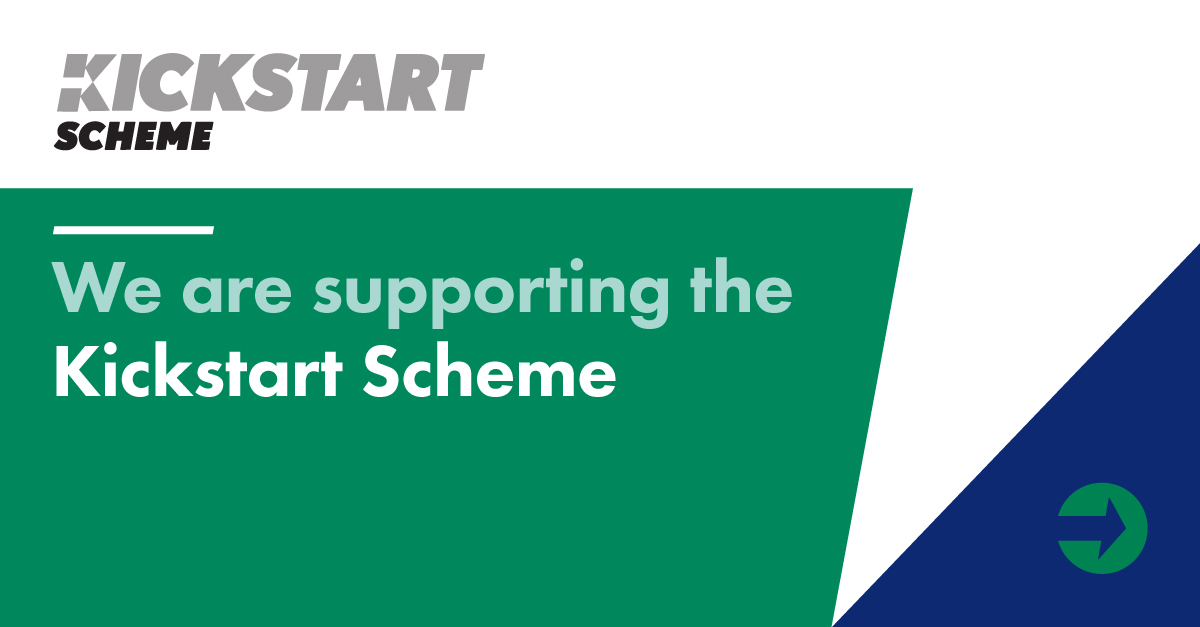Government Kickstart Scheme for Job Creation – 6 Key Points

Covid-19 has meant significant job losses in many sectors, including hospitality and leisure which employ many young workers who suffer the most in recessions. Youth unemployment has long-term detrimental impacts and spells of unemployment as a young worker can lead to lower pay and more unemployment decades later.
Young workers have experienced the highest rates of redundancy, largest falls in employment, highest rates of furlough with reduced pay, largest falls in weekly pay, and the largest falls in hours worked.
In response to this, the UK Government introduced the Kickstart Scheme, a new National £2 billion employment programme which provides funding for 16 to 24-year-olds who are at risk of long term unemployment.
The Kickstart Scheme will subsidise businesses who can offer young people work placements. If you are an employer who is interested in learning what the Kickstart Scheme is about and how this new Government funding can support your business, below are 6 key points you should know:
What is the Kickstart Scheme funding for?
As a business of any size, you can use the Kickstart Scheme to create new 6-month job placements for young people who are currently on Universal Credit and at risk of long-term unemployment. The job placements should support the participants to develop the skills and experience they need to find work after completing the scheme.
How much funding is available as part of the Kickstart Scheme?
Funding is available for 100% of the relevant National Minimum Wage for 25 hours a week, plus associated employer National Insurance contributions and employer minimum automatic enrolment contributions. There is also £1,500 per job placement available for setup costs, support and training.
Who can apply for funding through the Kickstart Scheme?
Any organisation, regardless of size or industry, can apply for funding. The Kickstart Scheme is available in England, Scotland and Wales.
What type of job placements can be created as part of the Kickstart Scheme?
The job placements created with Kickstart funding must be new jobs. They must not replace existing or planned vacancies or cause existing employees or contractors to lose or reduce their employment. The job placements themselves must not require extensive training to get new employees up to speed. However, each application will need to show how the placement will help young people develop their skills and experience.
How many job placements can you apply for on the Kickstart Scheme?
Funding is available following a successful application process. Applications must be for a minimum of 30 job placements. If you are unable to offer this many job placements, you can partner with other organisations to reach the minimum number or alternatively apply through an approved Kickstart Gateway Organisation such as Sona Circle Recruitment.
How to apply for the Kickstart Scheme
If your organisation is creating more than 30 job placements as part of the Kickstart Scheme, you can submit your application directly online by visiting the Kickstart Scheme.
If your organisation is creating fewer than 30 job placements, you cannot apply directly. You must partner with other organisations in order to create a minimum of 30 job placements before applying or contact an approved Kickstart Gateway Organisation such as Sona Circle Recruitment via email at kickstart@sonacircle.com.
About Sona Circle Recruitment
Sona Circle is a non-profit social enterprise which connects socially conscious employers with a skilled, dependable and diverse workforce. We have a track record of promoting equality in the workplace and in employment for refugees and BAME employees alike.
Sona Circle Recruitment is an approved Government Kickstart Scheme Gateway Representative. Our experienced team members have successfully supported over 20 organisations in securing job placements with the Kickstart Scheme.
If you are an employer who would like to get involved, you can find out more about how we can support you by visiting our website or by getting in touch with us at kickstart@sonacircle.com